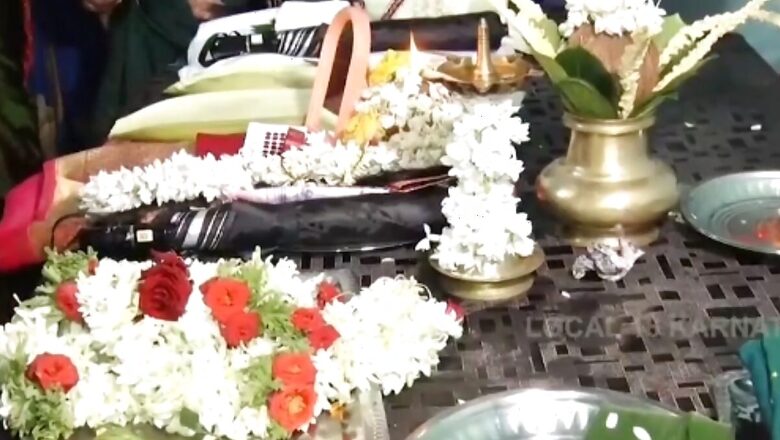
views
India’s rich cultural tapestry encompasses a myriad of dialects, customs, and traditions, each region offering a unique perspective on life’s various aspects. When it comes to weddings, the nation comes alive with vibrant celebrations, sumptuous feasts, joyous music, and age-old customs. While every region boasts its distinct wedding rituals, have you ever heard of a practice that involves marrying the spirits of the departed? Welcome to the world of Kule Madime, a unique tradition prevalent in parts of Karnataka, where the spirits of the deceased are united in a symbolic marriage.
The term Kule Madime translates to “marriage between spirits of the dead” in Tulu, a language spoken in coastal Karnataka. This ritual is rooted in the belief that it offers a sense of spiritual salvation to souls that left the earthly realm without experiencing the bond of marriage. It is thought to free these departed spirits from materialistic ties, allowing them to attain liberation.
The ceremony itself closely resembles a conventional wedding, with its rituals and festivities. Recently, the story of Vishalakshi and Dharanesh gained attention. Vishalakshi, who passed away at the tender age of 2, and Dharanesh, who succumbed to a heart ailment two years ago, were united in marriage. Vishalakshi was the daughter of Sanjiva Pujari from Bantwal, Mangalore in Karnataka.
The proposal for the union was initiated by the bride’s family after consulting an astrologer, who gave the favourable nod. After negotiations between the families, the marriage was conducted in adherence to traditional customs. A post-wedding feast was served to the guests, but before this, the spirits of the bride and groom were symbolically served food on a plantain leaf laid out on a “Mane,” a symbolic structure.
In Tulu communities, this practice is born from the belief that when a family experiences the loss of a child and their surviving sibling reaches marriageable age, they might encounter obstacles in arranging marriages for their children.
The uniqueness of Kule Madime lies not only in its distinctive nature but also in the cultural nuances and spiritual significance it holds for the communities that practice it. While weddings are typically associated with the union of the living, this tradition draws attention to the spiritual realm, underscoring the diverse ways in which cultures express their beliefs and honour the departed.




















Comments
0 comment